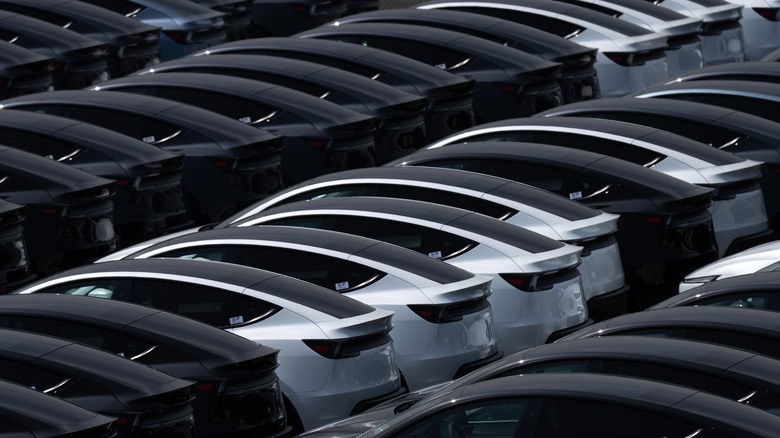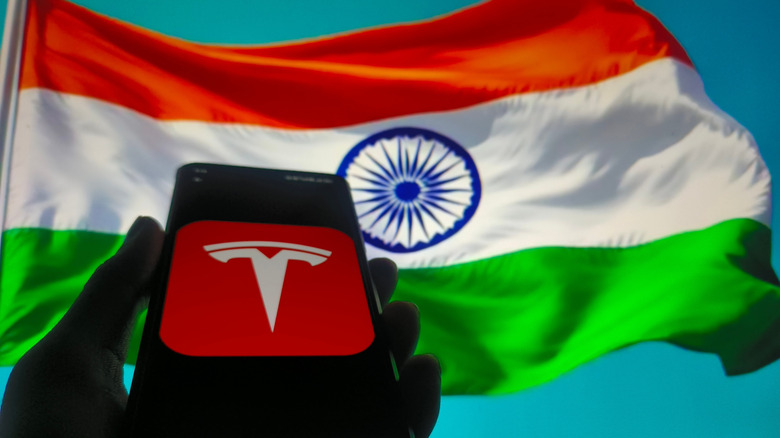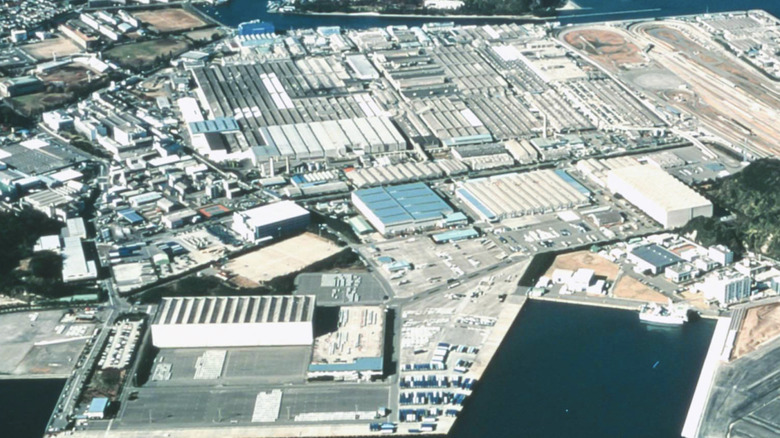Good morning! It’s Tuesday, July 15, 2025, and this is The Morning Shift, your daily roundup of the top automotive headlines from around the world, in one place. This is where you’ll find the most important stories that are shaping the way Americans drive and get around.
In this morning’s edition, we’re looking at how North America’s EV sales are fairing versus the rest of the world, and how badly tariffs are hurting Volvo. We’re also checking out how ridiculously expensive the Tesla Model Y is going to be in as well as Nissan’s plan to shutter one of its most important factories.
1st Gear: North America struggles with EV sales
Global sales for electric vehicles and plug-in hybrids jumped 24% in June from the same time last year, thanks almost entirely to momentum in China and Europe. At the same time, sales in the U.S. were down 1% and are expected to continue struggling throughout the year, according to market research firm Rho Motion. You can thank President Donald Trump’s rhetoric toward EVs, as well as his spending bill that will cut federal EV tax credits sooner than anticipated.
It’s not just the U.S., though. Canada is also doing its part to drag down North America’s switch to EVs. It lagged behind the “rest of the world” countries, which included emerging markets in Southeast Asia, South and Central America. From Reuters:
Global automakers face a 25% import tariff in the United States, the world’s second-largest car market, causing many of them to withdraw their outlooks for 2025.
In Europe, incentives for retail and fleet buyers in key markets such as Germany and Spain, alongside a growing availability of cheap EVs, are expected to support electric car sales through the second half of the year.
While some of the most successful EVs in the small vehicle segment are produced by European carmakers such as Volkswagen and Renault, those by Chinese brands including BYD are taking up market share in the continent and driving growth in emerging markets, Lester said.
Sales in China were up 28% last month from the same time last year to 1.11 million vehicles. Europe also saw a 23% increase to around 390,000 EVs. In North America, well, it’s a different story. Sales fell 9% to 140,000 vehicles. The rest of the world saw sales rise an extremely solid 43% to over 140,000 vehicles.
Altogether, a total of 1.8 million EVs were sold in the world in June, and that’s the highest for a month in 2025 so far, Reuters reports.
2nd Gear: Volvo is being battered by tariffs
Trump’s policies aren’t just hurting electric vehicles, though. In some cases, they’re hurting entire car companies. Take Volvo, for example. The Swedish-Chinese automaker just took a $1.2 billion hit because of delays to some of its electric models and the rising cost of tariffs.
Development setbacks and tariffs in Trump’s America have greatly impacted Volvo’s battery-powered vehicles like the EX90 crossover and ES90 sedan. The effect of the one-time non-cash charge on its net income will come out to be about $930 million. From Bloomberg:
“Due to import tariffs the company is currently unable to sell the Volvo ES90 profitably in the United States, while ES90 margins are also under pressure in Europe for the same reason,” the company said in a statement.
The Sweden-based automaker, controlled by China’s Zhejiang Geely Holding Group Co., is among the more tariff-exposed global car brands and has previously said it’s looking into adding more production at its US plant. Volvo is also struggling to attract EV buyers in the highly competitive Chinese market, despite its access to the Geely ecosystem.
Volvo said its upcoming EX60 SUV, set to start production next year, will deliver “significant cost reductions and performance improvements.” The EX90 has struggled with software-related delays that have raised the model’s development costs.
In an effort to save money, CEO Hakan Samuelsson is planning to execute a massive $1.9 billion efficiency program. The move comes after the automaker’s operating profit plunged 60% in the first quarter of 2025.
3rd Gear: Indian Tesla Model Y is shockingly expensive
Tesla just launched its Model Y electric crossover in India, and holy cow, is it expensive. To start, the Indian Model Y will set buyers back $70,000. For reference, U.S. Model Ys start at $46,630, including destination. That 70 grand mark makes it the highest price among major markets.
To be fair, Tesla probably wasn’t going to sell many Model Ys in the country regardless of price. Despite the fact that India is the world’s third-largest car market, EV sales make up just 4% of the pie. From Reuters:
Tesla opened its first showroom in Mumbai on Tuesday and began taking Model Y orders on its website, marking its long-awaited entry into the market where Musk once had plans to open a factory.
For now, Tesla will import cars into a country where tariffs and related duties can exceed 100%, driving up the price for consumers.
Grappling with excess capacity in global factories and declining sales, Tesla has adopted a strategy of selling imported vehicles in India, despite the duties and levies.
The U.S. EV maker has long lobbied India for lower import tariffs on cars, and Prime Minister Narendra Modi’s officials remain in talks with U.S. President Donald Trump’s administration to lower the levies under a bilateral trade deal.
But the cars Tesla displayed in Mumbai were made in China, and its U.S. factories do not currently make the right-hand drive vehicles that are used in India.
Right now, it’s looking like the Model Y rear-drive will start at about 6 million rupees ($70,000). The Model Y long range will set buyers back 6.8 million rupees (over $79,000). That dwarfs the Model Y’s $36,700 starting price in China and $53,700 starting price in Germany.
If you want to spend even more money on a Model Y and are feeling brave (reckless), you can spend an additional 600,000 rupees on Tesla’s Full Self-Driving system. I’m sure that’ll work really well on India’s famously calm roads.
4th Gear: Nissan to shut down flagship Japanese plant
Nissan is planning to shutter one of its flagship factories in Japan and transfer operations to a plant in a different part of the country in an effort to reduce costs and production capacity as the automaker looks for ways to restructure its operations.
The Oppama plant has been in operation since 1961, and it employs about 2,400 workers, but that run of over 60 years of business will come to an end by March of 2028. From Bloomberg:
The decision isn’t a surprise, given the facility had already been on a list of plants facing closure. But it’s a big move, and will have large implications for the local economy, as Nissan looks to raise funds and cut expenses to turn around its rapidly deteriorating financial and operational position.
“Today’s announcement marks a restructure that comes with significant pain,” Chief Executive Officer Ivan Espinosa said at Nissan’s headquarters in Yokohama, Japan. “However, I firmly believe that carrying through with these actions is essential to overcoming the current situation and returning to a path of growth.”
There won’t be any other consolidation or cutting of vehicle production sites in Japan, Espinosa said. He added that it hasn’t been decided whether employees will be transferred within the company, or to whom some assets will be resold.
[…]
The plant is also a key economic pillar for Yokosuka and Kanagawa prefectures, employing thousands of workers and is also a significant taxpayer. Hundreds of local subcontractors, from parts suppliers to logistics firms, rely on its operations and its workforce keeps restaurants, retail shops and services near Oppama Station humming.
The Oppama plant has a storied production history. It was the facility that made the first-generation Leaf — the world’s first mass-produced electric vehicle. After Leaf production shifted to other plants, Oppama output focused on smaller vehicles like the Nissan Note and Nissan Aura.
The automaker says that its other facilities located alongside the Oppama factory, including a research center, test track and crash facility, will not be impacted by the plant’s closure.
Reverse: Don’t do that, Jimmy!
You shouldn’t have done that, Jimmy. It bummed people out. If you want to find out why, head over to History.com
On the radio: Post Malone – White Iverson
There’s no two ways about it, “White Iverson” still hits just as well as it did back in 2016. Few artists have a breakout song as iconic as this one.








